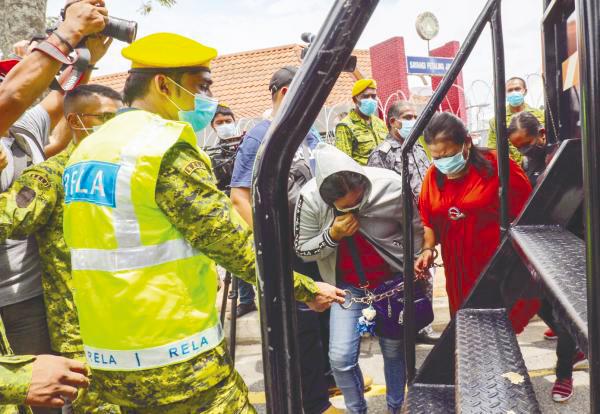AN impromptu cinema experience recently unveiled a profound issue that has persistently plagued societies worldwide for decades.
The film in question, Dunki , featuring the charismatic Shah Rukh Khan, emerged as a tragic comedy set in the 1990s but remarkably resonant in today’s context. The film delves into the perennial question of why nations continue to impose unjust and malevolent visa requirements.
While acknowledging the allure of certain countries and the influx of individuals seeking refuge from challenges such as poverty, war, discrimination and limited opportunities, the narrative shifts focus to a group of ambitious young individuals in their 20s attempting to reach London in the 90s. Their journey is fraught with challenges, near-death experiences and eventual return to Punjab, despite achieving financial success abroad.
The innate call to return home is explored, reflecting the feelings of many who leave their native countries in pursuit of better lives.
The story underscores the contrast between those who retain a deep connection to their roots and those who assimilate into their adopted countries.
The film introduces the concept of Dunki , shedding light on the illegal paths aspirants from India take to enter the US, UK and Europe. The existence of facilitators for such risky endeavours, known as touts, emphasizes the persistent demand for such avenues.
Coincidentally, I witnessed a massive immigration crackdown in Brickfields on New Year’s Day and the movie I saw days later connected.
Shops and stalls were suddenly abandoned, and an immigration sweep resulted in over 300 individuals of various nationalities being apprehended, with more than 100 found to possess invalid or non-existing documents.
This prompted a crucial question: How did these individuals enter Malaysia legally only to become later undocumented? Or did they even enter the country legally?
Either way, this calls for the relevant authorities to address the burgeoning issue at its source to prevent the constant need for city and town cleanups of illegal residents.
Those who were rounded up in such operations, which are ongoing, are kept in immigration facilities of some kind. Never mind that the treatment of these undocumented migrants has been questioned before by non-governmental organizations, but it takes resources to keep them fed, clothed and sheltered, and the taxpayers’ money is being used for this purpose.
In our interconnected world today, the latest estimates from the Population Division reveal a staggering 281 million souls, international migrants bravely calling a land beyond their birthplace home.
Among them, the resilient spirit of womanhood stands tall, constituting 48% of these global pioneers. Yet, this emerges in migration, a testament to human ambition and resilience, confronts political leaders in destination countries with a formidable challenge, to gracefully navigate the delicate balance between strained resources and pressing humanitarian demands.
The pulse of migration, as captured by United Nations (UN) data and the Migration Policy Institute, quickens. The international migrant share of our global population has emerged from 3.2% in 2010 to 3.6% in 2020.
In this context, the US emerged as the dwelling place for over 50.6 million international migrants in 2020, a beacon of diversity and dreams. However, other nations, especially in the Middle East, have shouldered even greater shares of this transformative tapestry, reflecting shared humanity transcending borders.
Yet, among these remarkable statistics lies a call to action. The Migration Policy Institute’s stark revelation – differences in data collection that create a disjointed understanding of the international migrant population.
There exists no consistent cross-country definition, leaving room for ambiguity.
The UN statistics, whether based on estimates of foreign-born populations or non-citizens, may not encapsulate the entirety of this dynamic narrative, especially when refugees may not be foreign-born.
In the heart-wrenching tableau unfolding, each of the hundreds and thousands of migrants gathered carries with them a narrative etched in the rawness of emotion, a poignant tale that reverberates with the echoes of their homeland and the compelling reasons that forced them to embark on this perilous journey to a foreign, unknown land.
Behind every weary face, there probably lies a desperate yearning to fulfill basic human needs, a longing that echoes through the ages.
In a world saturated with resources, if only nations and individuals extend a caring hand, the story may be different.
The haunting specter of poverty and deprivation needs not drive citizens of less privileged nations to brave the harshest and riskiest attempts at migration. The narrative of their suffering is not merely a statistic but a profound cry for empathy and shared humanity.
The world, with its abundance of resources, has the potential to be a sanctuary for all, sparing these brave souls the treacherous paths they tread.
It is a collective responsibility, a call to compassion, urging nations and people alike to open their hearts, to share abundantly, and to transform this tragic exodus into a testament of shared prosperity and a beacon of hope for a world where no one is compelled to embark on such harrowing journeys for the basic right to live with dignity.
Comments: letters@thesundaily.com











